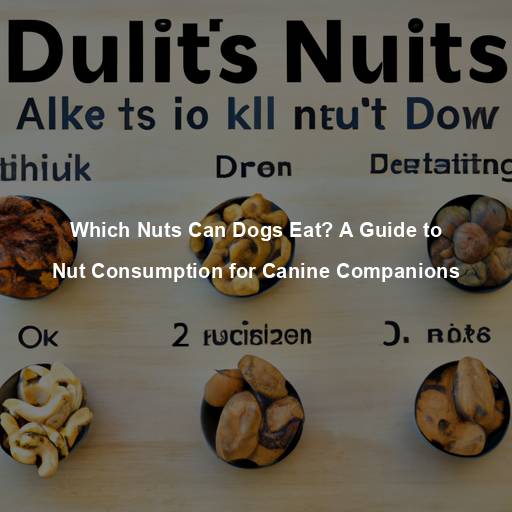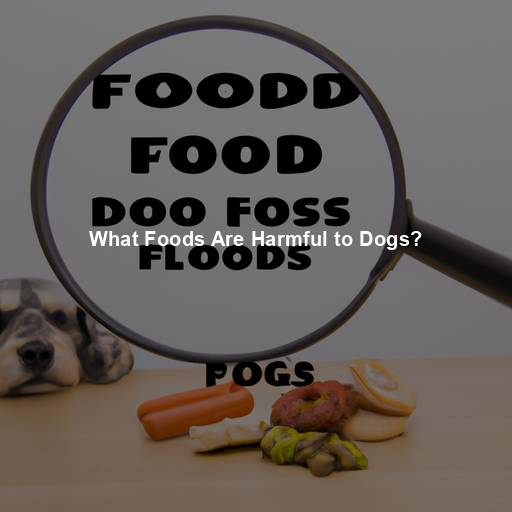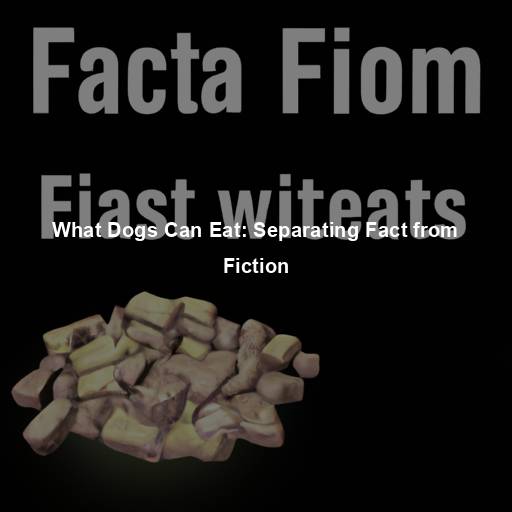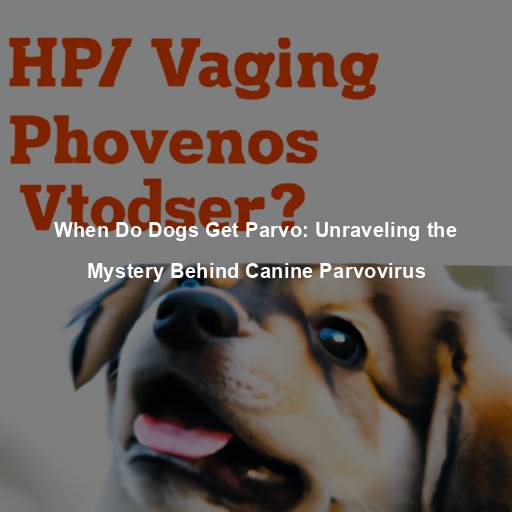Which Nuts Can Dogs Eat? A Guide to Nut Consumption for Canine Companions
Last Updated on July 20, 2023 by Evan
Contents [hide]
Understanding Nutritional Needs of Dogs
Dogs, our beloved family members, have a complex dietary needs that we, as responsible pet owners, must uphold. While their daily sustenance revolves around high-quality dog food, the occasional indulgence cannot be dismissed. Amidst the array of enticing choices, nuts may catch our attention, given their human-friendly health qualities. Nevertheless, it becomes paramount for us to acknowledge that not all nuts align well with our canine companions.
Safe Nuts for Dogs
Peanuts
Peanuts are a popular snack among humans, and fortunately, they are generally safe for dogs too. However, it is important to note that while plain, unsalted peanuts can be given to dogs in moderation, salted or flavored peanuts should be avoided, as excessive salt and flavorings can be harmful to their health. Additionally, it is crucial to remove the shells before feeding peanuts to dogs, as the shells can pose a choking hazard and may even cause digestive issues.
Cashews
When it comes to cashews and canines, there’s a twist of intrigue and bewilderment. These curious crumbly delights, adorned with nutritional prowess, might ignite a spark of wonderment. However, tread cautiously, for moderation is the key. Too many cashews might tip the scales and pave a path toward pudginess.
Almonds
When it comes to treating our furry friends, almonds can be quite the puzzle. While they can be an occasional delight, it’s crucial to tread cautiously through this nutty territory. Opting for unsalted and unflavored almonds is the key, as certain flavorings and salt can send our four-legged companions into a tailspin. And let’s not forget about portion control – these little morsels pack a punch with their fat content, so keeping it bite-sized is a must.
Hazelnuts
Hazelnuts are generally safe for dogs to consume, but it is crucial to ensure that they are plain, unsalted, and unflavored. Like other nuts, hazelnuts should be given in moderation due to their high-fat content. Additionally, it is essential to consider the size of the hazelnut and the size of your dog to prevent any choking hazards.
Pistachios
While pistachios are safe for dogs to consume, it is crucial to exercise caution. Be sure to choose unsalted and unshelled pistachios, as salted or flavored varieties can be harmful to your dog’s health. The shells of pistachios can also pose a choking hazard or cause digestive issues, so it is vital to remove them before offering pistachios to your furry friend. Furthermore, due to their high-fat content, pistachios should only be given to dogs in moderation.
Nuts to Avoid for Dogs
When it comes to sharing snacks with our furry companions, it’s crucial to be knowledgeable about which nuts can be hazardous for them. While some nuts are perfectly fine for dogs to munch on, others can pose serious health risks. To keep our four-legged pals safe and sound, it’s essential to keep a watchful eye and be cautious about the following types of nuts that can be harmful to our beloved canines.
Macadamia Nuts
It’s essential to be aware that macadamia nuts can be quite dangerous for our furry friends. Even a small quantity of these nuts can lead to a range of distressing symptoms including weakness, tremors, vomiting, and a rise in body temperature. Should you suspect that your beloved canine has consumed any macadamia nuts, it’s absolutely vital to seek prompt veterinary aid without any delay.
Walnuts
Walnuts should be avoided when it comes to feeding dogs. Walnuts can contain a mold called tremorgenic mycotoxins, which can be harmful to dogs if ingested. Symptoms of walnut poisoning in dogs may include vomiting, diarrhea, tremors, and seizures. It is best to prevent your dog from accessing walnuts to ensure their well-being.
Pecans
It’s important to be aware that pecans may not be a paw-some treat for our furry friends. These nuts can stir up some belly trouble for dogs, causing them to feel rather ruff. Alongside an upset stomach, symptoms like tummy turmoil, messy accidents, and discomfort may arise. With their elevated fat content, pecans, when gobbled down excessively, might even invite an unwelcome guest in the form of pancreatitis.
Pine Nuts
While pine nuts are not considered highly toxic to dogs, they can still pose a risk. The size and shape of pine nuts can make them a choking hazard for dogs, especially small breeds. Moreover, pine nuts can sometimes become rancid, which can lead to digestive issues if consumed by dogs. It is advisable to avoid giving pine nuts to your furry friend to prevent any potential complications.
The Importance of Moderation
When it comes to treating our dogs with nuts or any other human food, moderation is key. While certain nuts may be safe for canine consumption, it is essential to remember that they should only be given as an occasional treat and in small quantities. Nuts are often high in fat, and excessive consumption can lead to weight gain, digestive issues, or even pancreatitis in dogs. Additionally, it is crucial to avoid salted, flavored, or seasoned nuts, as these can contain harmful additives that can be detrimental to your dog’s health.
Consulting Your Veterinarian
If you have any concerns or questions regarding your dog’s diet and whether certain nuts are suitable for them, it is always best to consult with your veterinarian. They can provide professional advice tailored to your dog’s specific needs, taking into consideration factors such as breed, age, and overall health. Your veterinarian can guide you in making informed decisions about your dog’s diet and help ensure their well-being.
Peanuts: A Good Source of Protein
Including peanuts as a protein source in your furry friend’s diet can provide some benefits, but it’s crucial to tread carefully. These little legumes can offer a boost of protein, which plays a vital role in supporting your pup’s overall well-being. From repairing tissues to aiding the immune system, protein is a true hero in a dog’s world. Nonetheless, it’s crucial not to go overboard, as our four-legged companions primarily need animal-based protein from premium dog food.
Cashews: Healthy Fats and Minerals
Cashews, when given to dogs in moderation, can provide healthy fats and essential minerals. These nuts contain monounsaturated fats, which are considered heart-healthy fats. Additionally, cashews are a source of minerals such as magnesium, zinc, and phosphorus, which play vital roles in maintaining overall health. However, it is important to note that cashews should not replace a balanced dog diet and should be offered sparingly due to their high-fat content.
Almonds: Vitamin E and Antioxidants
Almonds, when given to dogs as an occasional treat, can provide some nutritional benefits. They contain vitamin E, which acts as an antioxidant and helps protect the cells from damage. However, it is crucial to remember that dogs have different vitamin requirements than humans, and their dietary needs should primarily be met through specialized dog food. Almonds should be given sparingly and only in plain, unsalted form.
Hazelnuts: Fiber and Vitamin E
Did you know that hazelnuts can actually be beneficial for our furry friends? When given in moderation, these tasty little treats can provide our dogs with some much-needed dietary fiber and vitamin E. The fiber helps keep their digestive system in tip-top shape and can even help ward off any unwelcome constipation. As for the vitamin E, it acts as a superhero antioxidant, working hard to support the health of their precious cells. Just remember, though, too much of a good thing can be detrimental, so it’s important to keep an eye on portion sizes and not let them go hazelnut-crazy due to their high-fat content.
Pistachios: Antioxidants and Plant Compounds
When it comes to treating our furry friends, it’s natural to wonder about the potential benefits of certain foods. One interesting nut that has caught the attention of dog owners is the humble pistachio. Bursting with antioxidants like lutein and zeaxanthin, these green gems have been linked to supporting eye health and safeguarding cells from harm. Moreover, pistachios also pack the punch of phytosterols, plant compounds that may offer various health perks.
Introducing Nuts to Dogs: Precautions and Considerations
When introducing nuts to your dog’s diet, it is important to take certain precautions and considerations to ensure their safety and well-being. Here are some guidelines to keep in mind:
Start Small and Observe
When introducing a new food item, including nuts, into your dog’s diet, it is advisable to start with a small portion and carefully observe their reaction. Some dogs may have allergies or sensitivities to certain nuts, so it is crucial to monitor for any adverse reactions such as vomiting, diarrhea, or changes in behavior. If any negative symptoms occur, discontinue offering that particular nut immediately and consult with your veterinarian.
Moderation is Key
As mentioned earlier, moderation is crucial when offering nuts to dogs. Nuts are generally high in fat, and excessive consumption can lead to weight gain, digestive issues, or pancreatitis. It is best to limit the amount of nuts given to dogs and offer them as occasional treats rather than a regular part of their diet.
Avoid Additives and Seasonings
When treating your furry friends to some nutty delights, prioritize their well-being by sticking to plain, unsalted, and unflavored varieties. Those tantalizingly flavored or seasoned nuts may seem tempting but bear in mind that they can pose risks to our canine companions. Take a moment to carefully scrutinize those ingredient labels, ensuring that your chosen nuts steer clear from any potential additives that could cause harm.
Size and Choking Hazards
When it comes to giving nuts to your four-legged companion, it’s crucial to factor in both the nut’s size and your dog’s size. For instance, bigger nuts like almonds and pistachios can potentially become a choking hazard, especially for smaller breeds or pups with a tendency to gobble up their food. So, it’s wise to either opt for nuts that are proportionate to your pet’s size or contemplate crushing them into more manageable pieces before presenting them to your precious furry friend. Stay mindful and keep those paws safe!
Veterinary Guidance
When it comes to sharing nuts with your furry friend, it’s natural to have questions swirling in your mind. However, fret not, because seeking guidance from a trusted professional like your veterinarian is the key to clearing up any confusion. By consulting with them, you’ll receive tailored recommendations that take into account your dog’s individual needs, ensuring their diet remains on point. From portion sizes to the right frequency, your veterinarian will guide you through the nutty maze, leaving you with a clearer picture of what’s best for your pup’s overall wellness.
The Verdict: Nuts and Dogs
While certain nuts can be safely given to dogs in moderation, it is important to remember that nuts should not replace a balanced and nutritious dog diet. Nuts can provide some nutritional benefits, but they should only be considered as occasional treats and offered in small quantities. It is crucial to choose plain, unsalted, and unflavored nuts, and to be mindful of potential choking hazards and the high-fat content of nuts. As with any new food introduction, monitoring your dog’s reaction and consulting with your veterinarian is essential to ensure their well-being.
When it comes to our beloved canines, their well-being and joy are of utmost importance. Nurturing their health through a well-rounded, suitable diet is key in granting them the gift of longevity, vitality, and an abundance of cherished moments spent together, laden with affection and camaraderie.
FAQs – Which Nuts Can Dogs Eat?
What nuts are safe for dogs to eat?
When it comes to sharing snacks with our furry friends, caution is key. While some nuts can be part of a dog’s diet, not all of them pass the safety test. However, if you’re feeling the nutty urge to treat your pup, peanuts, cashews, and almonds are a few options to consider. Just remember, it’s all about balance – these nutty delights should only play a supporting role in a dog’s culinary adventure.
Can dogs eat peanuts?
Yes, dogs can eat peanuts. Peanuts are generally safe for dogs, but it is important to give them plain, unsalted peanuts. Avoid giving dogs peanuts that are seasoned, salted, or coated with any additives. Raw, unsalted peanuts or peanut butter without xylitol are the best options to offer your furry friend as an occasional treat. Always be mindful of portion sizes, as peanuts are high in fat and can cause obesity if consumed excessively.
Are cashews safe for dogs?
When it comes to treating our furry friends to a little snack, cashews have gained some attention. However, it’s important to tread carefully on this narrow path of canine indulgence. While cashews can indeed be a part of their culinary adventure, moderation is key. These delightful nuts can be a source of fat, which might tip the scale towards weight gain or even disrupt our four-legged companions’ stomachs if consumed in excess. To play it safe, remember to offer them plain and unsalted cashews, cutting them into bite-sized marvels to ensure a smooth chewing experience.
Can dogs eat almonds?
When it comes to treating our furry friends, caution must be exercised. While almonds may seem like a tempting snack, it is paramount to remember that moderation is key. Although generally safe for dogs, the high fat content in almonds can pave the way for unexpected complications such as pancreatitis and unwanted weight gain. Furthermore, it is imperative to steer clear of flavored, salted, or seasoned almonds, as these additives might be detrimental to your pup’s health. Prior to introducing any novel food into your dog’s diet, it is always advisable to seek advice from a trusted veterinarian.
Are there any nuts that dogs should absolutely avoid?
Believe it or not, there are some nuts out there that our furry friends should steer clear of. Take macadamia nuts, for example – they’re like a hidden trap for dogs, as they are majorly toxic and can wreak havoc on their little bodies, causing all sorts of symptoms like weakness, vomiting, tremors, and even hyperthermia. And it’s not just macadamias, walnuts and pecans are also on the no-go list due to their high fat content and the pesky risk of mold contamination. Oh, and let’s not forget about those nuts still in their shells – they may seem innocuous, but they can actually be a real choking hazard or even lead to some serious bowel obstructions if our furry friends don’t break them down properly. So, folks, it’s better to be safe than really sorry – make sure to keep your precious pets away from any nuts not specifically marked as safe for their consumption. Safety first, people!






